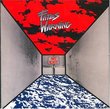| All Artists: Fates Warning Title: Perfect Symmetry Members Wishing: 2 Total Copies: 0 Label: Capitol Release Date: 8/4/1989 Genres: Rock, Metal Styles: Progressive, Progressive Metal Number of Discs: 1 SwapaCD Credits: 1 UPC: 018777340823 |
Search - Fates Warning :: Perfect Symmetry
 | Fates Warning Perfect Symmetry Genres: Rock, Metal
|
CD DetailsSimilar CDs
|
CD ReviewsA Major Letdown Mike | Maryland | 01/20/2005 (3 out of 5 stars) "I had always heard that this was the best and most definitive of Fates Warning's sound. I was so excited when I ordered it from Amazon; I put it in and was disappointed. Many of the tracks were very poor and Ray Adler's voice was just a scream for the majority of the time. "Through Different Eyes" is good though, and except for the instrumental beginning, "Nothing Left to Say" is one of the best songs that Fates Warning had ever done. The rest of the songs aren't that good to begin with, but the production does not help. It is very weak and dated, and the guitars don't hit as hard as they should. Also, although Mark Zonder would become a metal drumming legend, it is hard to pick up on this album, maybe because he does nothing spectacular, but maybe because it is nearly impossible to hear him. Fortunately I gave the band another chance with "FWX" and have discovered that Fates Warning is really good. I guess that hardcore fans of the band will enjoy this, but to someone looking to get into Fates Warning, I would instead recommend "Parallels."" A True Landmark in the History of Prog Metal Murat Batmaz | Istanbul, Turkey | 02/22/2005 (5 out of 5 stars) "Fates Warning's Perfect Symmetry is a truly historic and genre-defining recording in progressive metal. Up until the late 80's, a term as "progressive metal" didn't even exist. It could be easily argued that Perfect Symmetry and Voivod's Nothingface, both released in 1989, are the first albums that marked the birth of really heavy, crushing metal elements blended with progressive music. This is different from any Rush, King Crimson or Yes inspired band. This is METAL with serious progressive overtones. Many people who listen to Perfect Symmetry today may find it a tad flat and uninspiring, but I challenge those people to go back to the year 1989 and find equally genre-busting, original, creative, forward-going releases. From a historical context, Perfect Symmetry ranks right on top of the list as one of the most influential albums ever.
This is drum god Mark Zonder's debut with the band too. Listening to Zonder's drumming is a true delight. I don't think I've been amazed of this magnitude by anyone else's drumming; Mark Zonder gives Fates Warning a new edge, makes them a better, more challenging act with tons of chops and transparency. Whilst this is merely his first album with the band, he works the drums with blistering power and accuracy, adding various odd-metered rhythms. Founding member Jim Matheos and Frank Aresti are still deeply rooted in a metal territory but their songwriting has moved towards a more cohesive style. Frank Aresti continues to integrate his impeccable skill into the songs as Matheos experiments with melody and harmony. Vocalist Ray Alder sings in a more disciplined manner; rather than screaming every verse, he's creating gripping melodies and delivering haunting lyrics. He's not as effective in the music as he's on the band's 90's albums, but he's certainly getting there. DiBiase on bass is less prominent than, say Awaken the Guardian, but then he is more of a straightforward bass guy whose style would better fit the John Arch-era. Still, he's there 100% with subtle rhythms and bass grooves. Guesting on the album is ex-Dream Theater keyboardist Kevin Moore. Many think that Moore only played on Fates Warning's 1997 and 2000 releases, which is true to a certain extent. Kevin was a key member on A Pleasant Shade of Gray and Disconnected as he played practically on every song, but his real debut with Fates Warning is Perfect Symmetry, the track "At Fate's Hands". This is one of the longest songs on the album beginning with a forlorn violin piece alongside Moore's distinctive piano melody. As Zonder plays with his cymbals, Kevin creates a creepy atmosphere which serves as a backdrop to the lengthy instrumental passage interwoven by Matheos and Aresti's celestial lead guitar melodies. The songs are pretty nicely evened out. There are compact metal songs such as "The Arena" and "A World Apart". Mainly composed by Frank Aresti, the latter begins with dark and brooding acoustic guitars (which Aresti is great playing at) and introduces an unexpected odd-time polyrhythm by Mark Zonder before it delves into a dexterous and melodic guitar solo with lots of tapping sweeps. This is, in my opinion, one of the best solos on the album. "Part of the Machine" and "Static Acts" are penned by Matheos and Aresti respectively. Both guitarists play melodically strong solos that descend over Ray Alder's lyrics. Alder particularly sounds great on "Static Acts" signalling the fact that he will be a defining element on the band's future releases. "Through Different Eyes" and "Chasing Time" are the album's ballads. Matheos comes up with a somewhat bluesy guitar line in the intro of "Through Different Eyes", which is enhanced by piercing screams from Ray Alder, and later a breathtaking guitar duel between the two axemen. I've always believed the style explored on this song is further developed on the band's subsequent release, Parallels. "Chasing Time" offers more violin and string instruments with emotional singing from Ray Alder. The progressive climax of the album, however, is the last song "Nothing Left to Say". At nearly 8 minutes, the song finds the band in their most extreme and experimental prog metal phase. Plenty of solos abound the compositions with polyrhythmic drum attacks, dense rhythm and lead guitars, and complex time signatures. Matheos' lyrics once again are only a small taste of what's yet to come. The only setback of Perfect Symmetry is its production. Roger Probert is obviously more of a traditional Heavy Metal producer as he doesn't seem to have much of an impact on the band's stylistic direction. Some of the arrangements are weak and the stereo mixing is flat. There's little separation of the instruments or the vocals. However, this minor problem is overcome on the later albums as the band matches up with renown producer Terry Brown. This is a very key album in the evolution of progressive metal and essential to anyone who is interested in finding out the roots of this ever-changing genre. I also usually recommend this for starters, after Parallels, of course." |

 Track Listings (8) - Disc #1
Track Listings (8) - Disc #1

